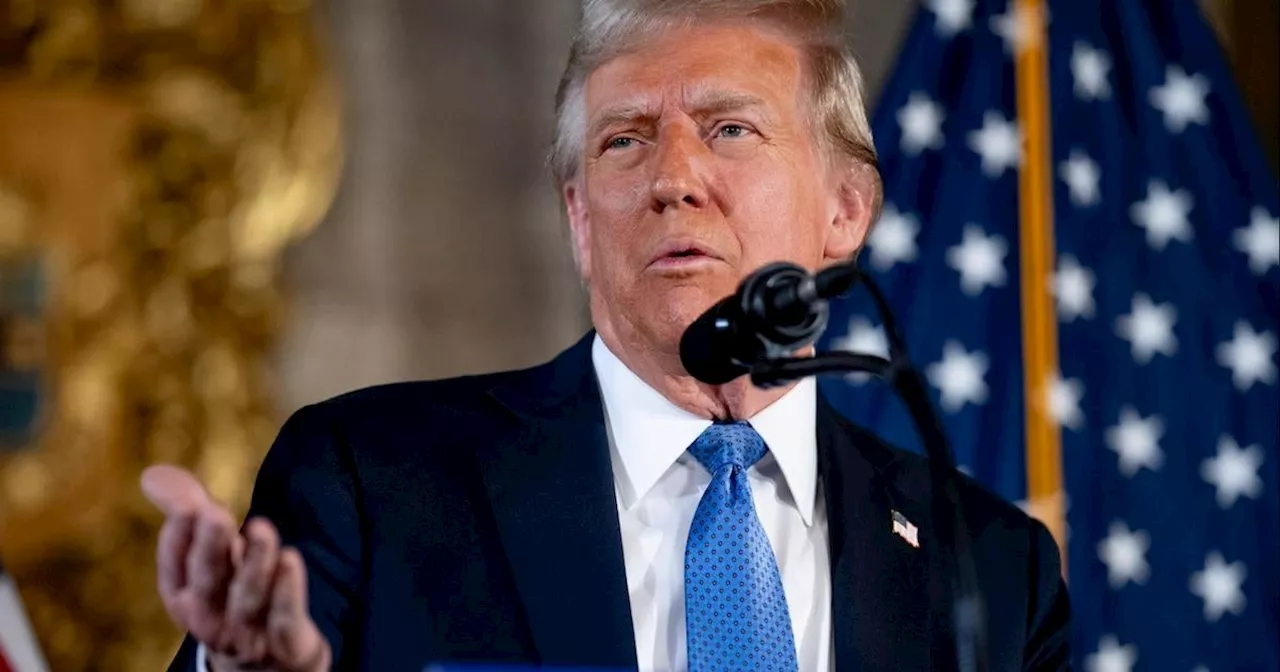President Trump's threats of steep new tariffs against major trading partners seem poised to become reality. Economists warn of potential economic fallout.
On the day of his inauguration, President Trump threatened steep new tariffs against key U.S. trading partners. Now he may be primed to deliver. Mr. Trump said January 20 that he could announce 25% tariffs against Canada and Mexico as soon as February 1, while China could face a 10% duty. Economists have warned that stiff tariffs could reawaken inflation on a range of consumer goods and slow economic growth. Mr. Trump has threatened tariffs against multiple nations for a range of reasons.
He said he is specifically targeting Canada, Mexico, and China with tariffs to compel them to take action to halt the flow of undocumented immigrants and illicit drugs into the U.S. Before Mr. Trump returned to power, he also had threatened tariffs of up to 60% on Chinese goods imported into the U.S., a measure experts say is intended to advance American interests in negotiating better trade terms with Beijing, as well as throttle the illegal entry of fentanyl into the country. In a show of how his administration uses tariff threats to pressure countries on other issues, Mr. Trump last week proposed potential 25% levies against Colombia unless it agreed to receive deportations of unauthorized immigrants. Colombia ultimately agreed to receive the immigrants, and the tariffs were withheld. Colombia's about-face suggests that Canada and Mexico could also reach agreement with the U.S. and avert a painful trade war. To that end, Howard Lutnick, Mr. Trump's nominee for commerce secretary, said at his confirmation hearing Wednesday that Canada and Mexico could avoid tariffs by closing their borders to fentanyl. 'As far as I know, they are acting swiftly, and if they execute it, there will be no tariff,' Lutnick told senators. Even so, Mr. Trump's brandishing of potential tariffs — even if they are never imposed — highlights his willingness to use tough trade measures to punish even the country's closest allies unless they make concessions. 'As we have previously noted, trade policy will be transactional over the next four years with protectionist measures used to extort trade, immigration and other political concessions,' EY-Parthenon chief economist Gregory Daco said in a research note. What exactly is Trump planning? Rather than targeting individual countries, the Trump administration could also opt to impose a blanket tariff on a range of countries in Asia, South America, Europe, and other regions, experts say. But it remains unclear what tariffs could be deployed, how they might be structured, and the possible timeline for deploying them. 'I think we have to proceed on the assumption that some kinds of tariffs are going to be imposed on the United States' major trading partners,' Brett House, professor of economics at Columbia Business School, told CBS MoneyWatch. 'In the end, there is a lot that gets announced by the president on social media that does not come to pass. I don't take it as bluffing, so much as a storm of possibilities, and it's hard to tell which bit of that storm is going to be pursued most aggressively, and most immediately.' What's clear, by contrast, is that the new administration is picking up where Mr. Trump left off in his first term in using trade policy as an instrument of both economic and foreign policy. That is likely to lead to a period of uncertainty and volatility, said John Lash, group vice president of product strategy at supply-chain software firm E2open. 'A lot of alternatives are still possible,' Daco told CBS MoneyWatch in an interview. 'We don't know, but game theory would suggest the president would implement tariffs in some form against Mexico and Canada — not blanket tariffs, but on a select number of imports from both nations... because otherwise his bluff is going to be called.' On how soon any tariffs could take effect, Daco notes that Mr. Trump could move quickly by claiming authority under a 1977 law known as the International Emergency Economic Powers Act. 'When he said he'll impose tariffs on February 1, it is still an open question as to what means would be used. Do you want to implement tariffs immediately, as threatened against Colombia over the weekend, or are you threatening with a deadline to obtain concessions?,' Daco said. Would the U.S. face retaliation? Almost certainly, economists say. If Trump officials move ahead with tariffs on its northern neighbor, 'We anticipate Canada would then respond in kind by also implementing a 25% across-the-board tariff on U.S. imports,' Satyam Panday, chief U.S. and Canada economist with S&P Global Ratings, said in an email. Elijah Oliveros-Rosen, chief emerging markets economist at S&P Global Ratings, predicted Mexico also would fire back with targeted tariffs. 'In the case of Mexico, we think it's very unlikely the government would place tariffs on U.S.-manufactured imports, given most are intermediate goods eventually exported to the U.S.', Oliveros-Rosen added.
TRADE TARIFFS MEXICO CANADA CHINA IMMIGRATION ECONOMICS POLITICS DONALD TRUMP
United States Latest News, United States Headlines
Similar News:You can also read news stories similar to this one that we have collected from other news sources.
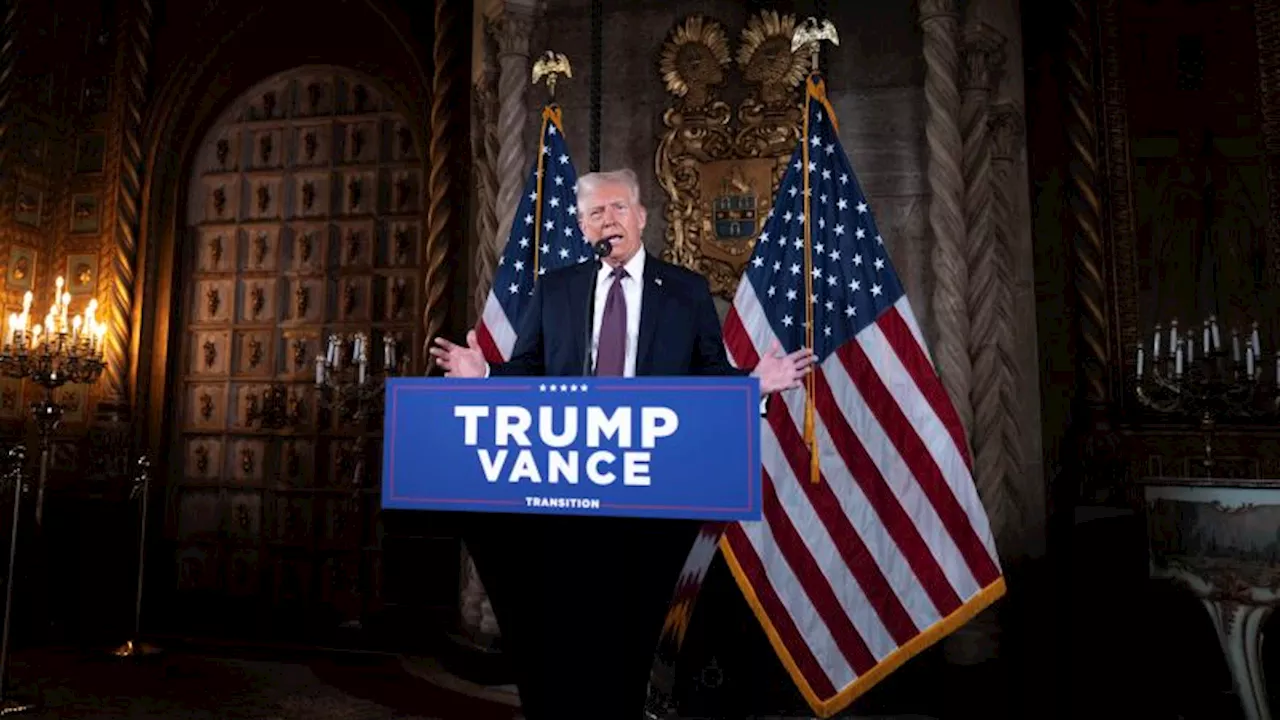 Trump May Declare National Economic Emergency to Impose TariffsPresident-elect Donald Trump is considering declaring a national economic emergency to justify widespread tariffs on both allies and adversaries.
Trump May Declare National Economic Emergency to Impose TariffsPresident-elect Donald Trump is considering declaring a national economic emergency to justify widespread tariffs on both allies and adversaries.
Read more »
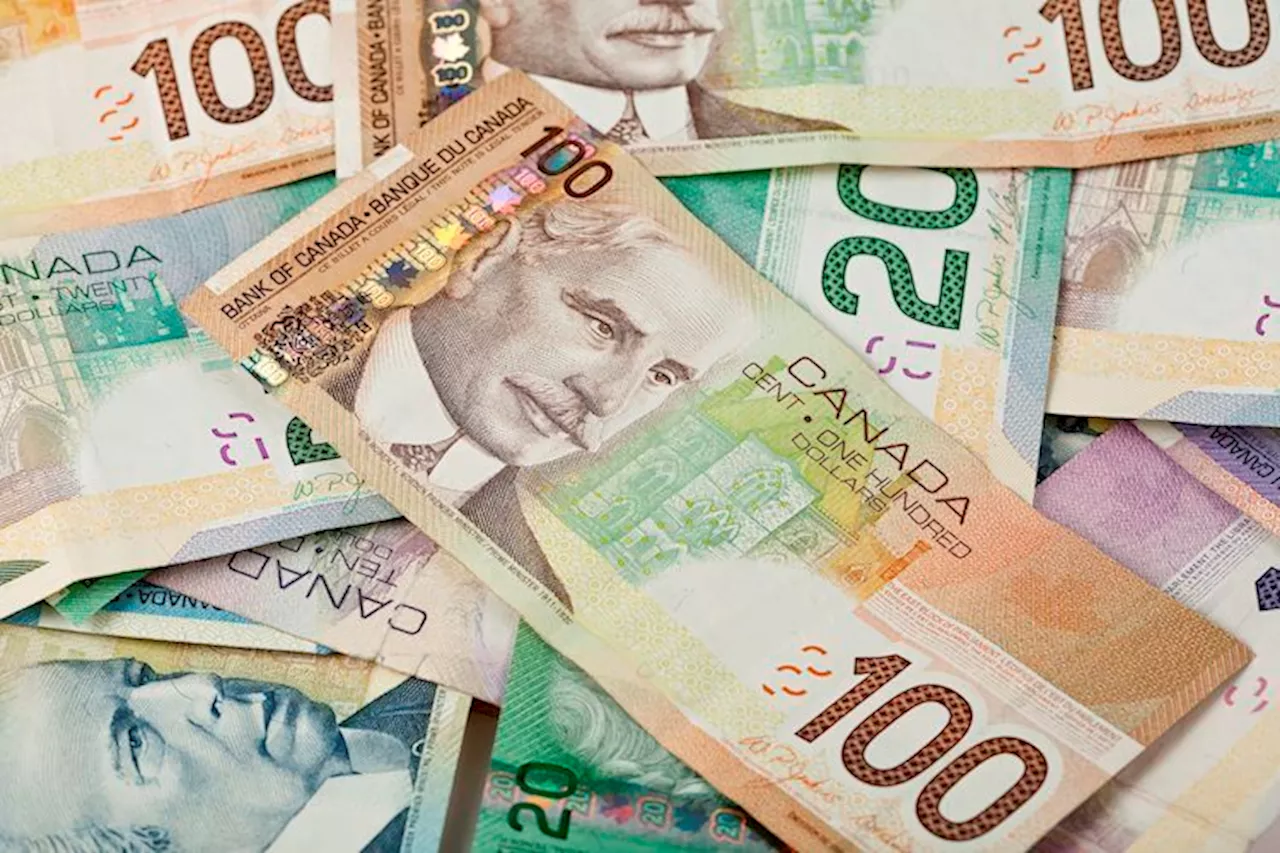 Trump to Impose Tariffs on Mexico and Canada to Curb Illegal Immigration and Fentanyl FlowPresident-elect Trump's announcement of tariffs on Mexico and Canada aims to address illegal immigration and fentanyl trafficking. The move is expected to impact trade and currency markets.
Trump to Impose Tariffs on Mexico and Canada to Curb Illegal Immigration and Fentanyl FlowPresident-elect Trump's announcement of tariffs on Mexico and Canada aims to address illegal immigration and fentanyl trafficking. The move is expected to impact trade and currency markets.
Read more »
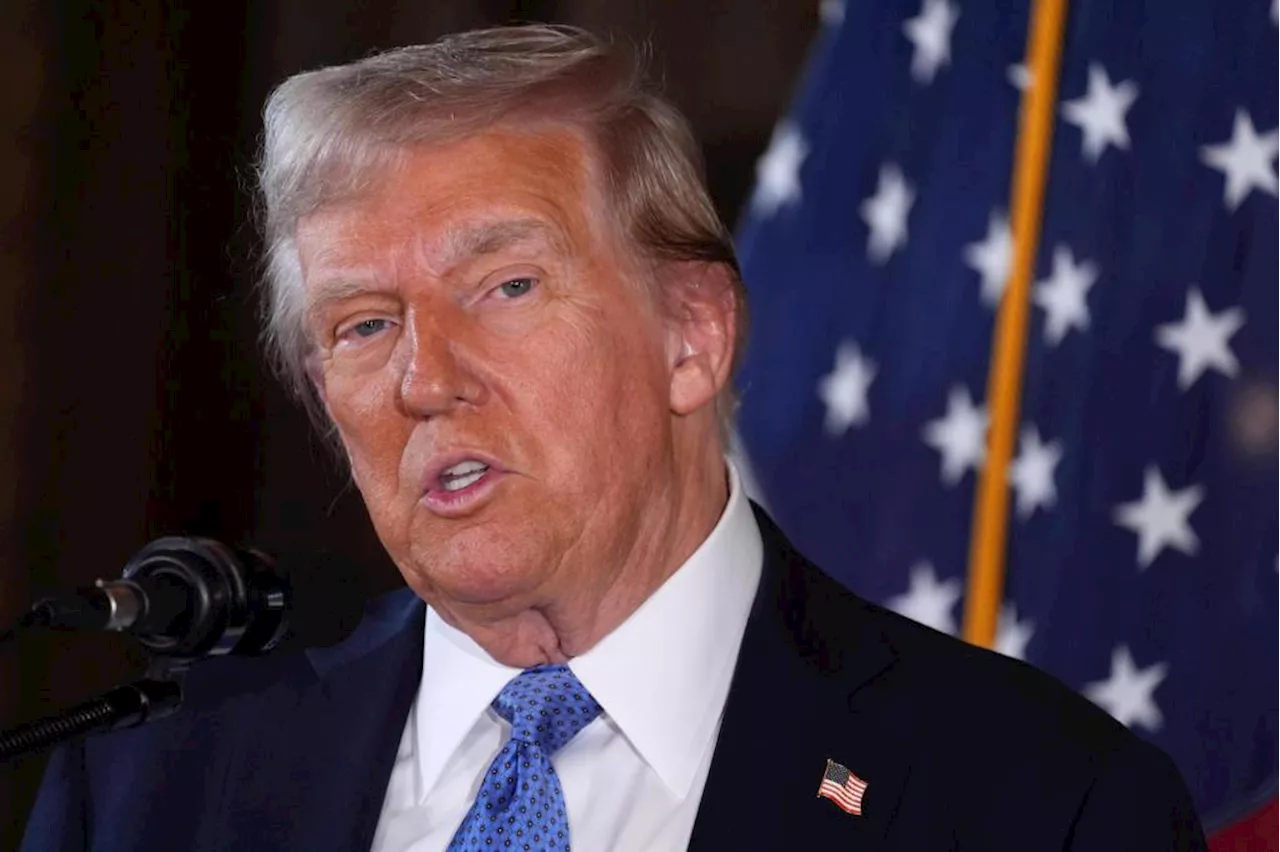 Trump's Potential Use of National Emergency to Impose Tariffs: A Legal MinefieldPresident-elect Donald Trump is considering declaring a national economic emergency to justify imposing tariffs. This raises legal and political questions about the president's powers under the International Economic Emergency Powers Act (IEEPA) and the potential for congressional oversight.
Trump's Potential Use of National Emergency to Impose Tariffs: A Legal MinefieldPresident-elect Donald Trump is considering declaring a national economic emergency to justify imposing tariffs. This raises legal and political questions about the president's powers under the International Economic Emergency Powers Act (IEEPA) and the potential for congressional oversight.
Read more »
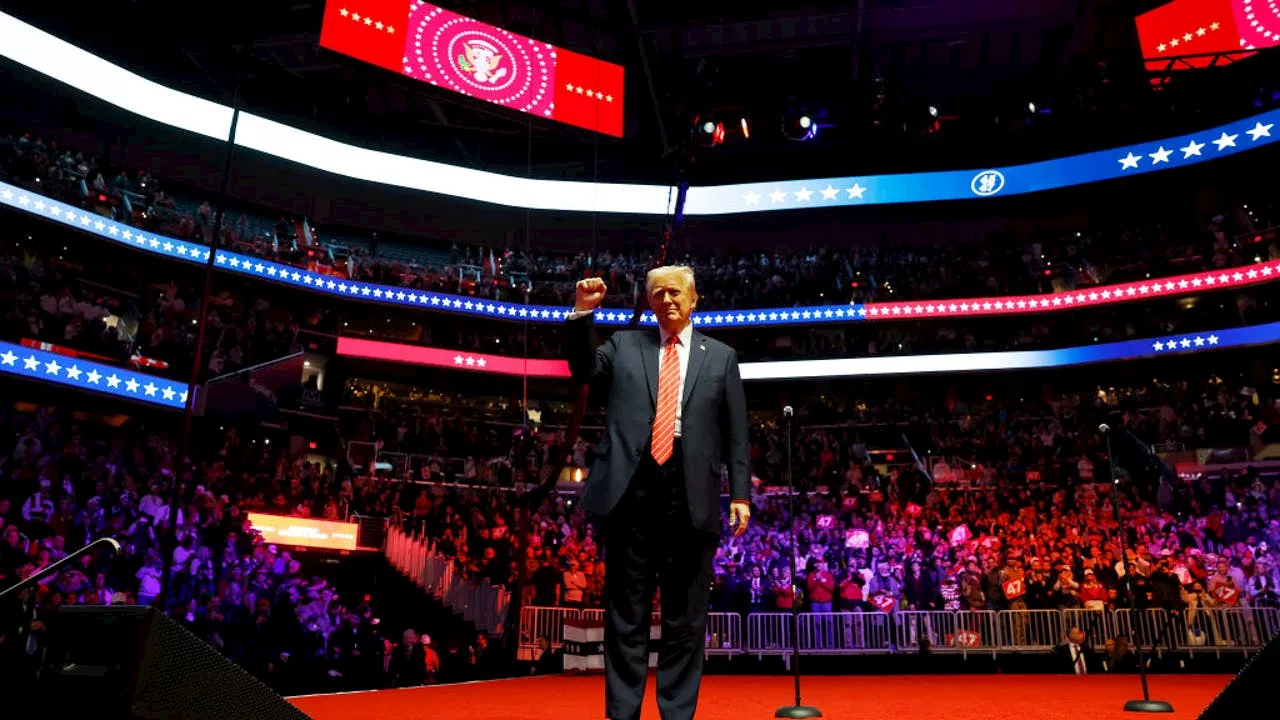 Trump to Impose Tariffs and Launch Mass Deportations on Day OnePresident-elect Donald Trump plans to implement significant changes on his first day in office, including imposing tariffs on imports from Canada, Mexico, and China, and launching a large-scale deportation program for undocumented immigrants.
Trump to Impose Tariffs and Launch Mass Deportations on Day OnePresident-elect Donald Trump plans to implement significant changes on his first day in office, including imposing tariffs on imports from Canada, Mexico, and China, and launching a large-scale deportation program for undocumented immigrants.
Read more »
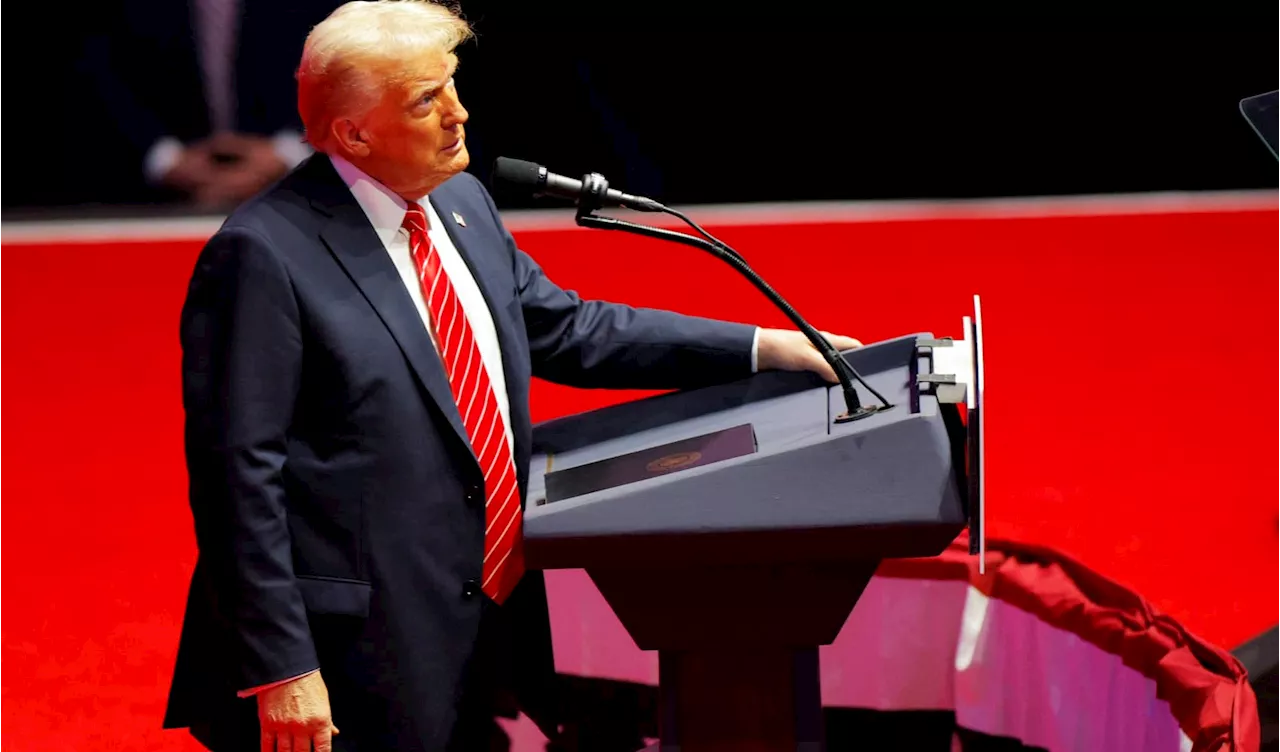 Trump trade memorandum won't impose new tariffs on day onePresident-elect Donald Trump won’t impose tariffs on U.S. trading partners on Monday as soon as he’s sworn in, according to the Wall Street…
Trump trade memorandum won't impose new tariffs on day onePresident-elect Donald Trump won’t impose tariffs on U.S. trading partners on Monday as soon as he’s sworn in, according to the Wall Street…
Read more »
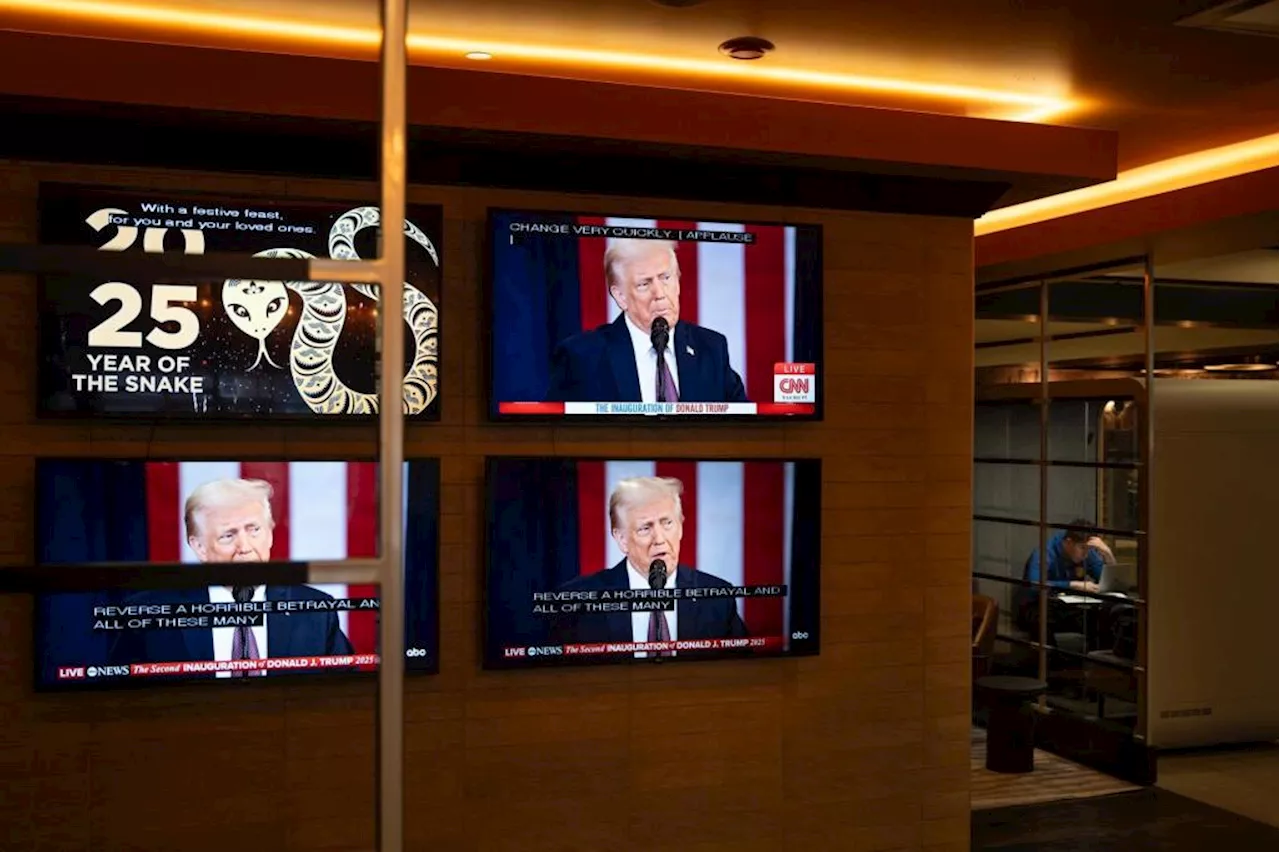 Canada relieved Trump doesn’t impose tariffs on first day in officeOur neighbor to the north is one of the most trade-dependent countries in the world, and 75% of its exports, which include automobiles and parts, go to the U.S.
Canada relieved Trump doesn’t impose tariffs on first day in officeOur neighbor to the north is one of the most trade-dependent countries in the world, and 75% of its exports, which include automobiles and parts, go to the U.S.
Read more »
